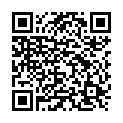|
|
|
| Module code: MAMS-110 |
|
|
4VU (4 hours per week) |
|
6 |
| Semester: 1 |
| Mandatory course: yes |
Language of instruction:
German |
Assessment:
Written exam (90 minutes / can be repeated semesterly) and project work (can be repeated annually)
[updated 20.11.2019]
|
DFMM-MAMS-110 Management Sciences, Master, ASPO 01.10.2019
, semester 1, optional course
MAMS-110 (P420-0020, P420-0021) Marketing Science, Master, ASPO 01.04.2016
, semester 1, mandatory course
|
60 class hours (= 45 clock hours) over a 15-week period.
The total student study time is 180 hours (equivalent to 6 ECTS credits).
There are therefore 135 hours available for class preparation and follow-up work and exam preparation.
|
Recommended prerequisites (modules):
None.
|
Recommended as prerequisite for:
MAMS-240 Empirical Marketing Seminar
[updated 11.10.2023]
|
Module coordinator:
Prof. Dr. Tatjana König |
Lecturer:
Prof. Dr. Tatjana König
[updated 14.09.2021]
|
Learning outcomes:
After successfully completing this module, students will:
be able to design, carry out and evaluate empirical studies,
be able to derive the appropriate multivariate method for a given problem,
be able to evaluate the application and quality of different multivariate methods, as well as the quality of the construct measurement (1st generation) on the basis of the respective quality criteria,
be able to interpret the results of multivariate procedures,
be able to process analysis results for information and present them clearly in a presentation,
[updated 11.10.2021]
|
Module content:
Empirical survey procedure including questionnaire design (scales, scale levels), survey methods and hypothesis tests,
Significance and overview of multivariate procedures, as well as the relevant procedure, special features of SPSS, benefits for marketing decisions in particular of:
- t-test
- Regression analysis
- Analysis of variance
- Contigency analysis
- Factor analysis
- Cluster analysis
- Conjoint analysis
[updated 11.10.2021]
|
Teaching methods/Media:
Lecture with tutorial and use of SPSS
[updated 20.11.2019]
|
Recommended or required reading:
Bacher, J. (aktuelle Auflage): Clusteranalyse, München.
Backhaus, K., Erichson, B., Plinke, W., Weiber, R. (aktuelle Auflage): Multivariate Analysemethoden Eine anwendungsorientierte Einführung, Hamburg.
Berekoven, L., Eckert, W., Ellenrieder, P. (aktuellste Aufl.), Marktforschung - Methodische Grundlagen und praktische Anwendung, Wiesbaden.
Hair, J.F. (Jr.), Black, W., C., Babin, B.J., Anderson, R.E., Tatham, R.L. (aktuellste Aufl.): Multivariate Data Analysis, Upper Sadle River, New Jersey.
Herrmann, A., Homburg, Ch., Klarmann, M. (Hrsg.): Handbuch Marktforschung Methoden, Anwendungen, Praxisbeispiele, aktuelleste Auflage, Wiesbaden.
Homburg, Ch, (bzw. Homburg/Krohmer, H.) (aktuelle Aufl.), Marketingmanagement, Wiesbaden.
Rudolf, M., Müller, J. (aktuellste Aufl.): Multivariate Verfahren, Göttingen u.a.
Sarstedt, M., Mooi, E. (2019), A Concise Guide to Market Research: The Process, Data, Methods, Using IBM SPSS Statistics, Springer (e-book)
[updated 11.10.2021]
|


